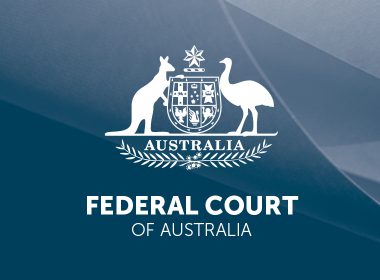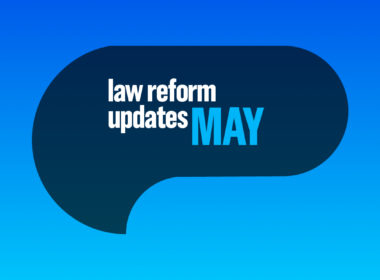Following the Law Council of Australia’s (LCA) recent review, the ASCR have been amended and came into effect on 1 April, 2022. The changes will apply in the Uniform Law jurisdictions.
Many Rule changes have been made for clarification, updating terminology or harmonisation with the equivalent Barristers’ rule. The LCA will also be updating the Commentary. However significant changes have been made to Rule 42 concerning anti-discrimination and harassment.
Rule 42: Anti- discrimination and harassment
Rule 42 previously prohibited discrimination, sexual harassment and workplace bullying by a solicitor, ‘in the course of practice.’
The Rule has now been extended and now covers a solicitor’s conduct, ‘…in the course of, or in connection with, legal practice or their profession…’ Whilst ‘legal practice’ is not defined in the ASCR, ‘law practice’ means, a sole practitioner, partnership, multi-disciplinary partnership, community legal service, ULP or an ILP. Interestingly, Rule 5 (Standard of Conduct- Dishonest or Disreputable Conduct) mirrors a similar concept of situational conduct, namely that a solicitor must not engage in such conduct ‘in the course a legal practice or otherwise.’
The type of conduct has also been extended to include ‘any other form of harassment.’
- Anti-discrimination and Harassment
42.1 A solicitor must not in the course of, or in connection with, legal practice or their profession, engage in conduct which constitutes:
42.1.1 discrimination,
42.1.2 sexual harassment, or
42.1.3 any other form of harassment, or
42.1.4 workplace bullying.
The LCA summarises the purpose of these amendments to be to:
- clarify that Rule 42 applies to conduct that occurs in any setting connected to the practice of law;
- ensure that professional disciplinary bodies can appropriately respond to matters concerning sexual harassment as either unsatisfactory professional conduct or professional misconduct; and
- express the profession’s collective view that discrimination and harassment (and, in particular, sexual harassment) are unacceptable conduct when occurring in any situation connected to the practice of law.
The changes to Rule 42 are a timely response to ‘…the profession’s view that discrimination and harassment (particularly sexual harassment) are unacceptable conduct for members of the profession…’2 The LCA felt that the ASCR are much more than legislative rules, more ‘..a statement by the profession of the ethical standards expected of legal practitioners in their professional conduct…’ 3 A solicitor is expected to conduct himself/herself to a higher standard of conduct than prescribed in any legislation or under the common law, whether this be in the office or at after work drinks or networking functions connected with legal practice.
Practitioners will especially note these changes in the context of the new ‘affirmative consent’ under the (Crimes Legislation Amendment (Sexual Consent Reforms Act 2021) which came into effect in NSW in May 2022.
Fit and Proper Person
The LCA’s intention is to make it clear that discrimination, sexual harassment, workplace bullying and any other form of harassment, can result in a finding of professional misconduct (PM) or unsatisfactory professional conduct (UPC) and possible disciplinary action under Rule 2.3. Such conduct is central to whether a person is a fit and proper person to be a solicitor.
Rule 32: Unfounded Allegations
The LCA intends to review the Commentary to Rule 32, where sexual and other unlawful harassment allegations are made against another Australian legal practitioner in the context of UPC or PM. Any allegation must be bona fide and in the belief, ‘on reasonable grounds,’ that there is available material in support.
Conduct definitions
In the Glossary to the ASCR, ‘workplace bullying’ picks up the definition under s.789FD of Fair Work Act 2009. There is a broader and more generic definition of unlawful ‘harassment’ and a specific definition of ‘sexual harassment’ is retained.
| ‘discrimination’ means discrimination that is unlawful under the applicable state, territory or federal anti- discrimination or human rights legislation |
| ‘sexual harassment’ means an unwelcome sexual advance, request for sexual favours, or otherwise engaging in other unwelcome conduct of a sexual nature to the person harassed in circumstances in which a reasonable person, having regard to all the circumstances, would have anticipated the possibility that the person harassed would be offended, humiliated or intimidated. |
| ‘sexual harassment” means harassment that is unlawful under the applicable state, territory or federal anti-discrimination or human rights legislation |
| ‘workplace bullying’ means bullying that is unlawful under the applicable state or territory antidiscrimination or human rights legislation or constitutes bullying at work under Commonwealth legislation. If no such legislative definition exists, it is conduct within the definition relied upon by the Australian Human Rights Commission to mean workplace bullying. In general terms, it includes the repeated less favourable treatment of a person by another or others in the workplace, which may be considered unreasonable and inappropriate workplace practice. It includes behaviour that could be expected to intimidate, offend, degrade or humiliate. |
Personal Relationships with Clients
There is currently no specific rule prohibiting sexual relations between a solicitor and client, although it could be seen as unethical conduct under Rule 4 (acting in a client’s best interests) and Rule 12 (Conflicts concerning a solicitor’s own interests).
Barrister Rules
The Australian Bar Association clearly shares the same views and concerns. In February 2022, the Legal Services Council amended Rule 123 (Anti discrimination and harassment) and Rule 125 (definition of Bullying) of the Uniform Conduct (Barrister) Rules, and adopted similar terminology ‘…in the course of, or in connection with, legal practice of their profession, engage in conduct which constitutes discrimination, sexual harassment or bullying….’ And specifically says that this conduct is not limited to, ‘…conduct at social functions connected to the bar or the legal profession...’
Reporting inappropriate behaviour
The Law Society of New South Wales, in partnership with the Office of the New South Wales Legal Services Commissioner (OLSC) and New South Wales Bar Association, has launched a new online reporting platform for targets and witnesses of inappropriate behaviour to report it on a secure, confidential and informal basis.
The reporting platform, called Elker, is administered by the OLSC, who have a dedicated team of professionals to support reporters and provides reporters with a mechanism to check on the progress of their report. Reporters are able to give as much or as little information, depending on their comfort levels.
The Elker platform is available online 24 hours a day, 7 days a week. Reporters can remain completely anonymous and maintain their anonymity even when communicating with the OLSC team, due to the platform’s encrypted 2-way chat, which is available office hours.
More information, including access to Elker, is available here.




